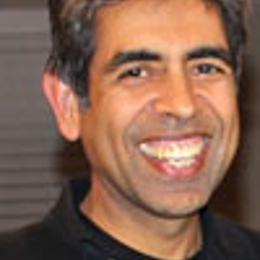ARTICLES BY THIS AUTHOR
- 7/29/2013
Are lawyers encroaching where they shouldn’t?
I have no objection to lawyers handling procedure of the law but they are not competent to make decisions about medical practice and, in turn, influence our practice through fear. - 6/18/2013
The unintended consequences of complaints against doctors
In my last post I argued how fear is pervasive in medical practice and how it prevents doctors from practising the best medicine. Now I want to explore how fear leads to practising "defensive medicine," which leads to harming the patient. - 5/6/2013
Why we shouldn't practise in fear
There is a pervasive fear in medicine and this does not help us practise at our best. This fear operates in the same way as it does in countries that are governed by dictators or in children who are fearful: In both cases it stunts growth and creativity. - 4/9/2013
Even though we can’t agree on euthanasia, we still have to act
The premise is there is an irrefutable answer to the question of euthanasia on which the majority of people will agree and thus legislation can be drawn that will allow those who are suffering to access this service. However, the issue is a complex one, which no one doubts. It is further complicated by imprecise language and maybe also from asking questions that do not allow us to move forward. - 2/6/2013
Changing patient behaviour starts with you, doctor
When we see patients not caring if their diabetes is controlled, not wanting to make an effort to lose weight, not following their diet, quitting smoking, or having regular blood tests or physical exams, it is not because they lack information. Rather, it is because patients have not found the right reasons for changing their behaviour. These reasons may not be the same reasons that we, as physicians, would consider compelling for making a change. - 1/6/2013
If we are all excellent physicians, why is care so average?
It is well-documented that most professionals think they are better at their jobs than they actually are. According to Scott Miller, cofounder of the International Centre for Clinical Excellence, we only need to be working 50 hours at a particular job after we stop improving (for more, see here). How is it that we lose objectivity about ourselves and stagnate? - 12/3/2012
Physician, feel thyself
A lot has been written about the doctor-patient relationship. An article in a recent issue of Canadian Family Physician— “From paternalism to benevolent coaching – New model of care”—discusses different models of this relationship. Unfortunately in all of these models there is one big flaw: They all assume the doctor is some sort of sterile receptacle into which a patient pours his or her troubles, and then the doctor is able to give a completely neutral opinion; that he doctor does not contaminate the interaction or influence the patient with his or her own thoughts. - 11/13/2012
That awkward moment when you have to call a patient’s guardian
A registered nurse I work with on the transition unit at the hospital felt awkward calling the families of two dementia patients to tell them their parents were found in bed together, being intimate. - 10/17/2012
Why I lost trust in my patient, and how he helped me regain it
So, here was a man with end-stage cancer admitted to palliative care for symptom control and comfort, who has a short time to live, and decided to use drugs. In one swoop my trust in him was lost.


